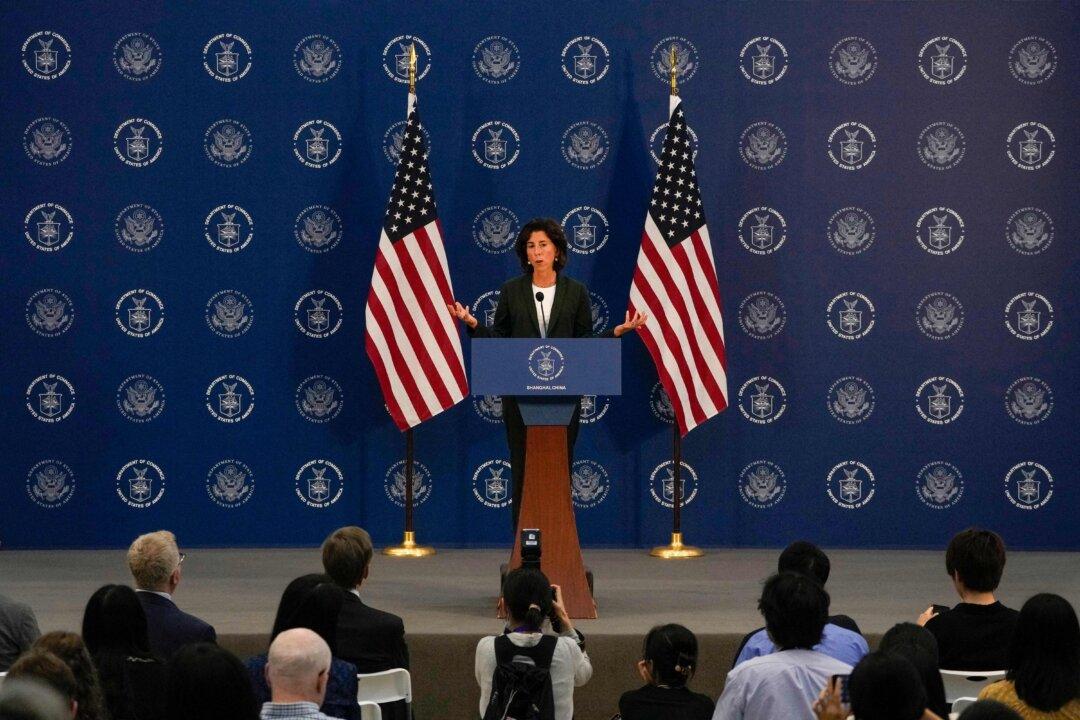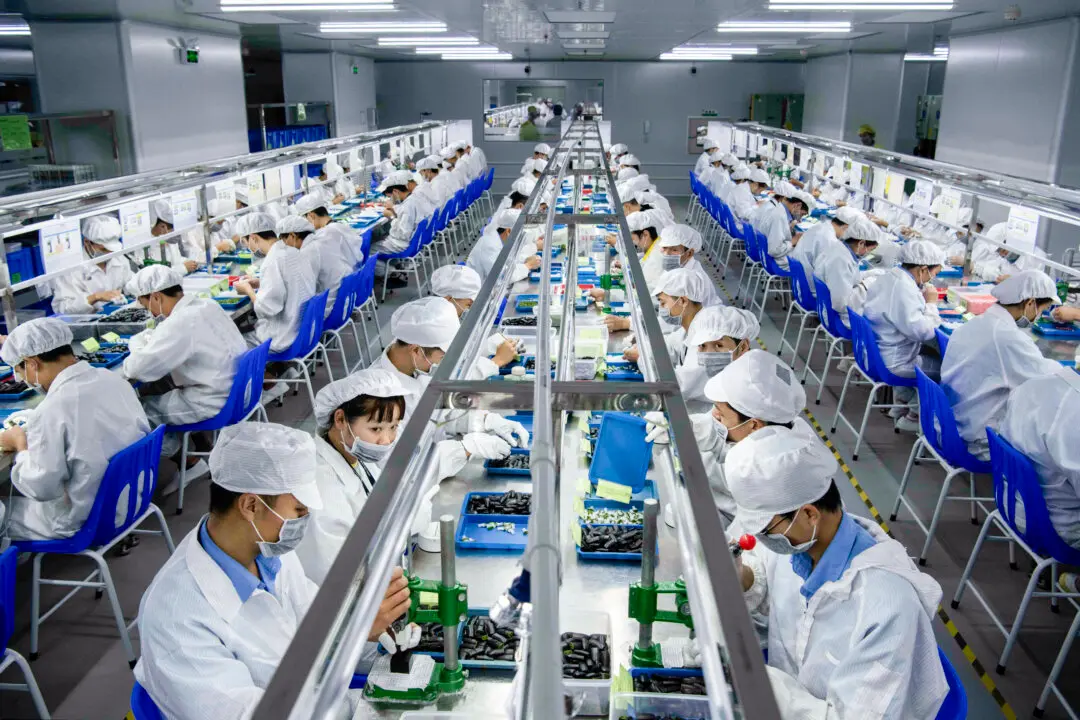U.S. Commerce Secretary Gina Raimondo wrapped up her visit to China on Aug. 30, after three days of talks with the regime’s officials that she called “productive.”
“It was for, as I say, three days of productive meetings,” Ms. Raimondo said during a call with members of the media that afternoon. “And the biggest achievement was just to start regular communication.




